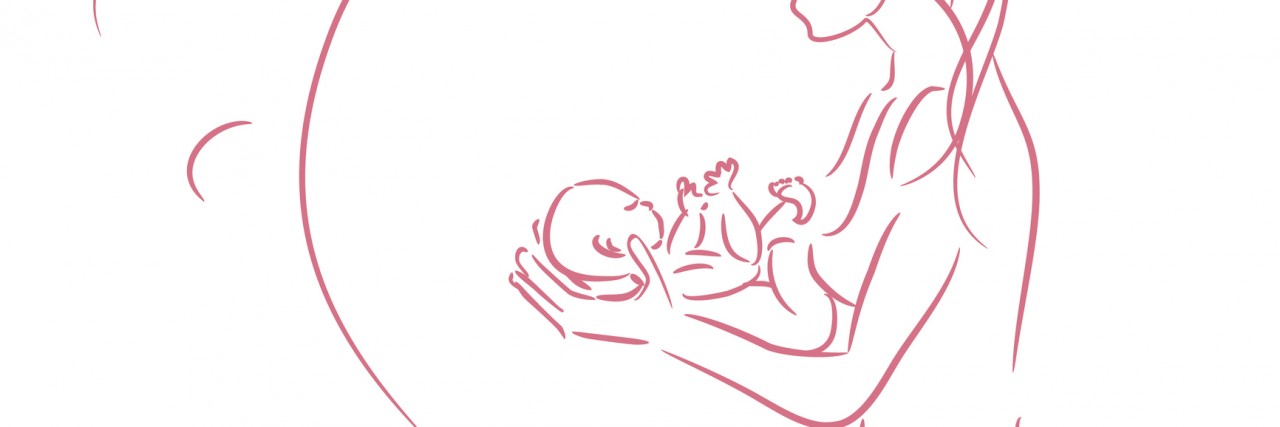During my pregnancy I did what I’m sure a lot of mothers-to-be do: I listed the things I would do differently from my mother. Then I immediately reminded myself I would definitely find myself saying or doing things that would make me think (or my husband say), “I’ve (you’ve) turned into my (your) mother!”
Once my beautiful daughter was born, I switched gears. Being someone of anxious nature (not the way the term is loosely used: “I am so anxious!” “I can’t find my keys, I’m having a panic attack!” I mean actual anxiety), I started worrying about all the negative things, physically and emotionally, my daughter would inherit from me and how I had basically doomed her from the start and how could I think passing on my genes could be a good thing?
One day, in the middle of a terrifying anxiety attack, I realized part of the source of the anxiety worrying about my daughter. I so pitied her for having me for a mother, screwed up as I was. And I asked myself a question I’ve been asking my husband since we got married, “Why do you love me?”
Another day, when I was experiencing one of my first postpartum periods and reliving the excruciating pain of first-day cramps, I felt sorry for my daughter, knowing there was a good chance she would suffer her periods as badly as I did in my teen years, one time almost to the point of passing out. I felt as I if I had chosen to give her painful periods and how horrible of me for doing that.
When we took her for her one-month check-up, the doctor told us she hadn’t gained any of her birth weight back. While it was a good thing she hadn’t lost weight, she hadn’t gained like she was supposed to (her need to nurse every hour even after nursing for 40 minutes suddenly made sense). I clearly understood that in no way was I at fault for not producing enough milk and yet I felt terrible for not realizing she wasn’t getting enough to eat for four whole weeks. I felt disappointed that my ideal of exclusively nursing for a full year came to an end so soon. I felt inadequate that I needed to supplement her with formula.
On a daily basis I questioned my parenting. Am I giving her enough attention? Is she happy? Does she get enough fresh air? Do her diapers fit her comfortably? Is it OK that I went back to work nine weeks postpartum? Is it OK that she seems to love the babysitter [almost?] as much as me?
Then one day, while doing guided imagery, I envisioned myself as an infant. I tried to picture infant-me ecstatically happy, like only an infant can be, hands clapping, big toothless grin. And the image that came to my mind, the face of that infant, was not my own. It was my daughter’s. As I tried to imagine happy infant-me, I saw my daughter clapping her pudgy hands, smiling widely, with her two bottom-front teeth clearly visible. And that’s how I knew I was good enough. I am a good mother. The picture of a happy, healthy infant in my mind, in my subconscious, was the one I had helped create and raise.
No matter how many times those whose opinion you value most will tell you you are a good mother, the only one who has the power to convince you, is you. It is so much harder than it sounds. It’s not telling yourself “I’m good enough, I’m OK.” Anyone can lie to themselves. It’s knowing it. Not having to tell yourself. It’s feeling it. It’s knowing you’re more than good enough. Your best is truly best for your child. Your best made this child the happy, giggly baby she is. No matter how flawed you think you are. No matter how screwed up you think you are — that flawed, screwed up person created and raised a beautiful happy baby. You are the perfect mother for your child.
The Mighty is asking the following: Are you a mother with a disability, disease or mental illness? What would you tell a new mother in your position? Check out our Submit a Story page for more about our submission guidelines.

